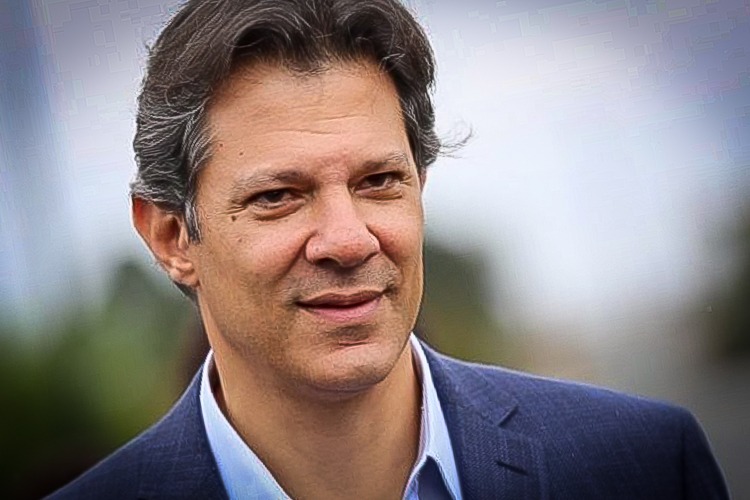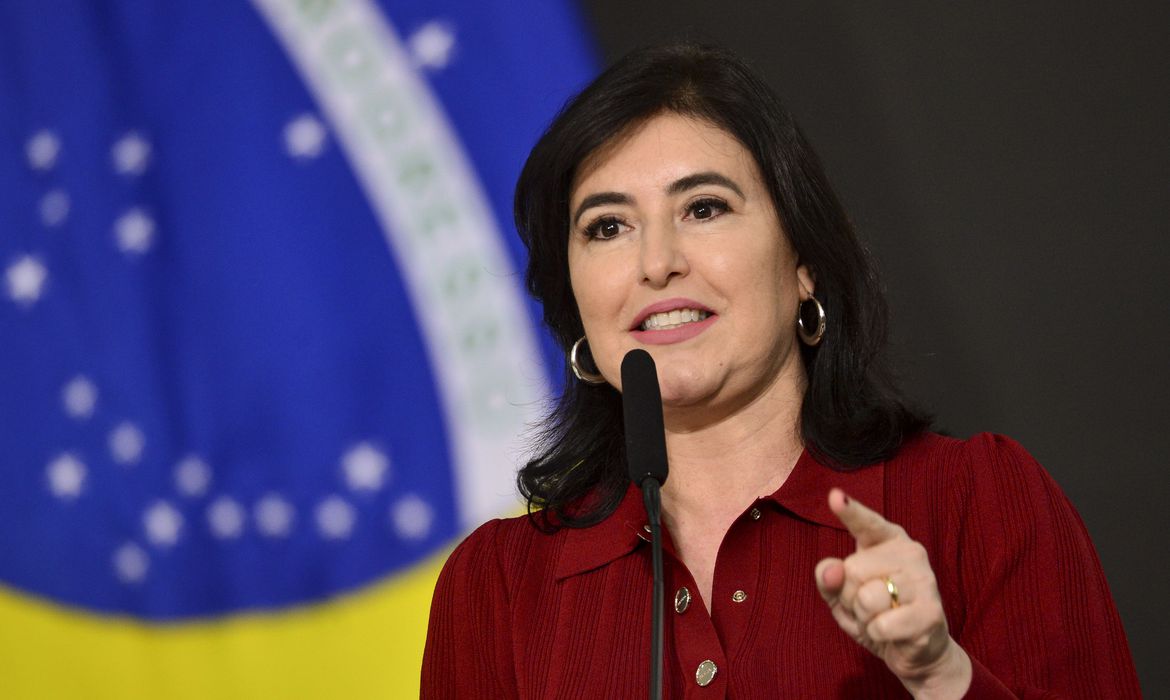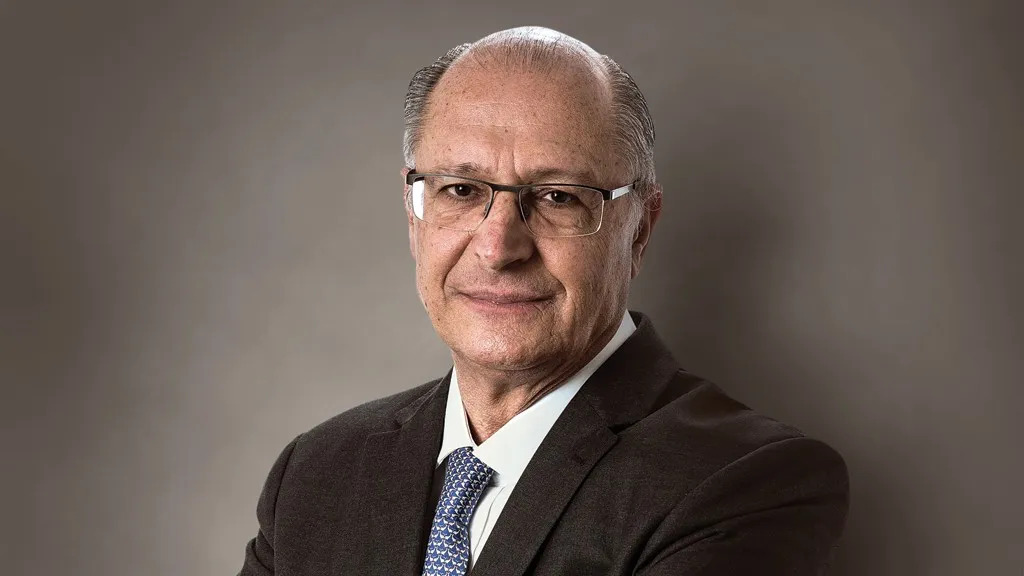The first week of the Lula da Silva (PT) government showed the discrepancy in speech among members of the 37 ministries.
There was a promise of revision of the Social Security reform, by the new minister of the area, Carlos Lupi (PDT), to the more veiled signaling of changes in the Sanitation Regulatory Framework, by the Minister of the Civil House, Rui Costa (PT).
At the end of the week, it was up to the new Minister of Planning, Simone Tebet (PMDB), to clarify which decisions had not yet been taken and, together with the Minister of Finance, Fernando Haddad (PT), to reinforce the commitment to fiscal balance, in an attempt to reduce the noise that caused future interest rates and the dollar to skyrocket and brought down the Ibovespa.

Apparently, it will be a script increasingly observed in this beginning of government: Haddad and Tebet form, together with Geraldo Alckmin (PSB), Vice President of the Republic and Minister of Development, Industry and Foreign Trade, and Esther Dweck (PT), Minister of Management and Innovation in Public Services, the quartet that is being seen in Brasília as the one that will fulfill the mission of trying to preserve the confidence of the private sector and investors with the economic sustainability of the country.
It is a shared role that stems from the new formation of the economic area, which, in the Jair Bolsonaro government, was concentrated on the shoulders of super minister Paulo Guedes.
Together, the four ministers form what Tebet called a “quartet in favor of Brazil” and fiscal responsibility, at his inauguration ceremony on Thursday (5).
“Imagine my honor to be here at this moment, alongside […] our vice president, now Minister of Industry and Commerce, Geraldo Alckmin. Alongside this economy team that will make the difference and will make this government work, presenting the right proposals, so as not to lack budget and money for public policies”, said Tebet in his speech.
“Imagine my responsibility, and also the honor of being at the side of our Minister of Finance […], Fernando Haddad, the one who has the key to the safe in his hand. Being next to Esther, Minister of Management. There will be four of us, a quartet in favor of Brazil.”
On paper, the Ministry of Finance is responsible for collecting and actually conducting economic policy. Planning, on the other hand, takes care of the Federal Budget and the follow-up of the execution of the government’s public policies.
Alckmin, in turn, will be responsible for the government’s industrial policy and foreign trade. And Esther Dweck, considered of technical profile, will be responsible for taking care of the guidelines for the provision of public service and for the digital transformation of the State.
In addition to recreating ministries, the structure of folders has changed. Planning, by Simone Tebet, will have the powerful Federal Budget Secretariat, while Alckmin’s ministry will have a new Secretariat for Green Economy, Decarbonization and Bioindustry.
Under the command of Paulo Guedes, the now defunct Ministry of Economy had 12 special secretariats, in addition to special advisory services, bodies under control and extraordinary secretariats. The “superministry” concentrated the entire economic area of the government, from tax collection to budgeting and industrial policy, including foreign trade.
See how the structure of each ministry of the economic area is:
1. FINANCE: HADDAD
The provisional measure that redesigned the Esplanada dos Ministérios defined that the Treasury, commanded by Fernando Haddad, was left with seven secretariats, in addition to the Attorney General of the National Treasury (PGFN) and the Financial Activities Control Council (Coaf), recently withdrawn from the Central Bank:
- Executive Secretary;
- Treasure;
- IRS;
- Economic policy;
- Economic Reforms; and
- Tax reform.
The main secretariats are the Treasury and the Federal Revenue. The first is responsible for the government’s financial programming, including the management of the Union’s account, the federal government’s debts and the federal government’s accounting and finances.

The Secretariat of Revenue is responsible for tax collection, the main source of income for the Union. It is the body that has more information about citizens and companies in Brazil.
Haddad also created an Extraordinary Secretariat for Tax Reform. The body’s main function is to take care of the approval of PEC 45, which intends to replace five taxes by one only value-added tax that will be levied on consumption.
This secretariat is in charge of economist Bernard Appy, one of the authors of the reform proposal through the think tank Centro de Cidadania Fiscal (CCiF).
The project foresees that the new tax – which will be called Tax on Goods and Services (IBS) – will be charged at a single rate divided between the Union, states and municipalities. According to the current text of the proposal, each federal entity would define its internal rate. The total tax would be the sum of all rates.
2. PLANNING: TEBET
Lula da Silva also recreated the Ministry of Planning, whose main functions are to draw up the Union’s Budget and monitor the performance of the federal government’s public policies. The folder was granted to Simone Tebet (MDB-MS) in negotiation between the president and MDB leaders.
Planning under Tebet underwent some rearrangements. Initially, she would be responsible for the Investment Partnerships Program (PPI), which takes care of federal government concessions. But the agency ended up staying in the Civil House, whose head is Senator Rui Costa (PT-BA), a longtime ally of Lula da Silva.
On the other hand, Planning was responsible for IBGE and Ipea, two of the major producers of information about the country, often used as subsidy for the production of public policies.

In all, there will be four secretariats, in addition to the executive secretariat and special advisory services:
- Planning Secretariat;
- Federal Budget Secretariat;
- Secretariat for Economic Affairs, Development, External Financing and Regional Integration; and
- Public Policy Planning Evaluation Secretariat.
The portfolio will also integrate the management committees of social programs, the flagship of the new PT administration – although Simone Tebet really wanted to be Minister of Social Development, responsible for implementing the programs.
In her inauguration speech as Minister of Planning, Tebet said that “social policy is central to the country”. “Each of our decisions will seek to answer three questions: who we are, what Brazil do we want, and who do we want this Brazil for. The answers to these questions, brought by the IBGE Demographic Census, by the secretariats of our Ministry, will be our guide.”
3. DEVELOPMENT, INDUSTRY AND FOREIGN TRADE: ALCKMIN
The Ministry of Development, Industry and Foreign Trade had been extinguished by the Bolsonaro government, which placed it within Paulo Guedes’ superministry. With Lula da Silva’s return to power, the folder was recreated, with new functions.
It will be one of the main ministries of the new government – to the point that the holder is vice-president Geraldo Alckmin (PSB).

Lula da Silva has been talking about the need to reindustrialize the country since the campaign, and Alckmin will take on that role. In his inauguration speech at the MDic, the vice president said that, “either the country resumes the industrial development agenda or it will not recover a path of sustainable growth, generating jobs and distributing income”.
The recreated MDIC will have five secretariats:
- Foreign trade;
- Industrial Development, Innovation, Trade and Services;
- Green Economy, Decarbonization and Bioindustry;
- Micro and Small Enterprise and Entrepreneurship; and
- Competitiveness and Regulation.
The main novelty is that the folder will also be responsible for the National Property Institute (INPI), responsible for all patents registered in the country – a notorious focus of bureaucracy for business activity.
The National Bank for Economic and Social Development (BNDES) will also no longer be under the umbrella of the economy to be under the MDIC.
4. MANAGEMENT AND INNOVATION IN PUBLIC SERVICES: DWECK
Another portfolio that resulted from the end of the Ministry of Economy was the Ministry of Management, as it is being called. It will be under the command of economist Esther Dweck, who was once head of the economic advisory at Planning and secretary of the Budget, both positions held in the government of Dilma Rousseff (PT).

The ministry is responsible for providing public service guidelines and for State’s digital transformation. Also under the responsibility of the portfolio are government personnel policies, data governance and corporate governance of federal state-owned companies.
The new folder is composed of seven secretariats, in addition to the executive secretariat, internal affairs and special advisory services:
- Extraordinary Secretariat for the Transformation of the State;
- Secretariat for Management and Innovation;
- Secretariat for Personnel Management and Labor Relations;
- Secretary of Digital Government;
- Secretariat for Coordination and Governance of State-owned Companies;
- Union Heritage Management Secretariat;
- Corporate Management Secretariat.
With information from Blommberg

